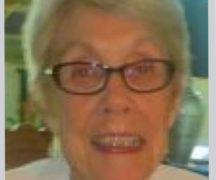
Clayton Krueger
Viewers of the PBS Civil War drama “Mercy Street” have been primed for an explosive finale to the limited series.
Rebels are planning an attack on President and Mrs. Lincoln when they visit the hospital at the center of the action. The climax to the series will play out Sunday at 10 p.m. on WBGU.
Another cliffhanger awaits: Will “Mercy Street” be back for a second run?
Among those awaiting final word is Clayton Krueger, a 1999 Bowling Green High School graduate, who is a senior vice president for television at Scott-Free Productions, which worked developing the series for PBS.
In a recent telephone interview he said the company was working on scripts for a second season pending the go ahead from top brass at PBS.
The production of “Mercy Street” broke from PBS pattern of importing its drama series from BBC in England. And, he said, more may be on the way.
The Civil War potboiler didn’t start as a drama series. The creator Lisa Wolfinger was planning a documentary series about medicine during the Civil War, and she brought in writer David Zabel to help with the scripting. Over the course of development the idea of a fictional series emerged. They sought out Scott Free, owned by blockbuster producer Ridley Scott, “to lend some oversight to the production,” Krueger said.
They met with Zabel and developed scripts.
“PBS incredibly supportive,” Krueger said. “They know their audience so well.”
While some networks “can get really prescriptive… PBS never took that approach.”
The episodes were filmed on location in Richmond and Petersburg, Virginia. Using two directors, each in charge of three episodes, the production had an aggressive production schedule, filming as many as nine pages of script a day. In a feature film, typically two pages are done a day. “We were on schedule of a network crime procedural trying to execute a period drama,” said Krueger, who is co-executive producer.
This was made possible because of Scott’s philosophy of hiring the best people and letting them work.
“It’s not a schedule that could have been accomplished if there was a single bad apple on either the crew or cast,” Krueger said. “Everyone was so game. Everyone was so dialed in. It was an incredibly drama-free production, behind the camera.”
After shooting, the editing was done in Scott Free headquarters, where Scott has installed editing bays. ”We’re very hands-on in editing and post-production.”
That philosophy of choosing the right people, and then letting them work, applies to finding new programs. “We’re very much focused on talent,” he said. “We’re all about being in business with writers and directors and supporting what they’re passionate about.”
Television has never offered so many outlets for quality programming. From “The Good Wife” on CBS to “The Man in the High Castle” for Amazon, Scott Free is heavily invested in television.
”In the wake of these larger shows like ‘Game of Thrones,’ anything is possible on television now.”
Krueger said his next big project, “Sensory” by Zabel, writer for “Mercy Street,” begins filming in March in Pittsburgh.
Growing up the son of photographer Louis Krueger and fabric artist Susan Krueger “find some form of artistic expression was expected .” For him it was film and music videos.
Krueger attended Ohio University as a film student. Television was an afterthought in the curriculum. He was unaware of all the work involved in producing and developing projects. “You’re not exposed to all the nuance and all the politics and all the cogs in the machine that make up this business. You’re only taught about writers and directors. You don’t realize how many people have to come together to make a TV show or movie.”
After graduating OU, he moved out to Hollywood where he was able to live with an uncle “while I sorted myself out.”
“You do have to be out here,” Krueger said. “You’re not going to get a job in Hollywood sitting in your home in Ohio. You have to take the plunge and get out here.”
Also, he added, “become a good reader and writer and that will serve you in every aspect of Hollywood.”
He said: “My one regret when I got out here was I should have just majored in English… because it’s all reading and writing.”
Krueger started off in an unpaid, not-for-credit internship. He later realized that the arrangement was illegal. Still, he said, “it was a foot in the door.”
From there he landed at E! where he worked on the “Countdown” shows. He moved on to other production houses, including DreamWorks and Jerry Bruckheimer Productions. At one point when he was at DreamWorks, a job in the film division opened up, but an older employee told him: “Dude, do not leave television right now.”
Krueger said it was advice worth heeding. He’s ended up working with one of his film idols. “It’s a real treat, a real blessing to go to work each day.”



